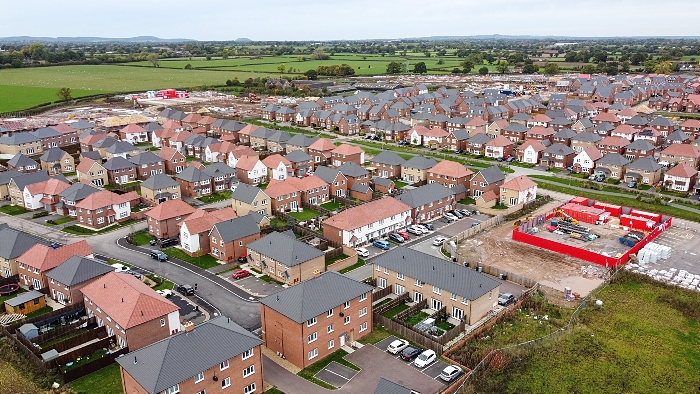
As a landlord, ensuring that you follow safety regulations is essential to provide a safe and secure environment for your tenants.
It also helps to make sure that you’re protected legally from tenants taking legal action against you if a property doesn’t meet safety standards.
Here’s how you can make sure you’re following safety regulations.
Gas Safety
For landlords gas safety is paramount. Arrange annual inspections by a Gas Safe registered engineer for all gas appliances, like boilers and cookers.
Furnish tenants with a copy of the valid gas certificate. Regularly check for gas leaks and ensure proper ventilation.
Promptly address tenant-reported gas concerns. Adhering to stringent gas safety measures underscores your dedication to tenant welfare and legal obligations, cultivating a safe and pleasant residential space.
Electrical Testing
Schedule regular inspections by a qualified electrician for wiring, sockets, and appliances.
Ensure that your property adheres to the latest Electrical Safety Standards in the Private Rented Sector (England) Regulations 2020, including obtaining an Electrical Installation Condition Report (EICR) every five years.
Promptly address any issues identified in the report. Encourage tenants to report electrical concerns promptly.
Regularly test and maintain smoke detectors and fire alarms.
By diligently adhering to electrical safety guidelines, you guarantee a secure and compliant living environment, demonstrating your commitment to tenant safety and well-being.
Repairs And Maintenance
As a landlord, you should prioritise timely repairs and maintenance. Respond promptly to tenant repair requests to ensure a safe and comfortable living environment.
Regularly inspect the property for issues and address them promptly. Keep records of all maintenance activities and repairs.
Arrange for qualified professionals to handle complex repairs. Provide clear communication channels for tenants to report problems.
Adhere to health and safety regulations, and ensure that communal areas are well-maintained.
By staying proactive and attentive to repairs and maintenance, you demonstrate your commitment to tenant satisfaction and uphold your responsibilities as a responsible landlord.
Fire And Monoxide Detectors
For landlords, installing fire and carbon monoxide alarms is vital. Fit smoke alarms on each floor, especially near bedrooms.
Install carbon monoxide detectors in rooms with fuel-burning appliances.
Ensure alarms are functioning upon the start of each new tenancy. Regularly test and maintain alarms, replacing batteries as needed.
Respond promptly to tenant reports of alarm malfunctions. Comply with legal requirements and safety standards to ensure tenant protection.
Your dedication to fitting and maintaining these alarms demonstrates your commitment to a safe and secure living environment, fostering trust and peace of mind for you and your tenants.
Staying up to date with evolving safety guidelines, such as the new fire safety standards BS 9991, also ensures your property meets modern expectations for residential fire protection.
Fire Exit Points
As a responsible landlord, ensuring fire exit points within your properties is paramount.
Strategically placing clearly marked exits provides tenants with safe evacuation routes in case of emergencies.
If your property has elevators, install elevator phones as well. These phones can provide an immediate line of communication during emergencies, ensuring that your tenants stuck in an elevator during a fire or power outage can quickly call for help.
Also, regularly inspect and maintain these exit pathways, ensuring they are unobstructed and easily accessible.
Install fire extinguishers and smoke detectors on each floor for added safety. Conduct fire drills to familiarise tenants with exit routes and emergency procedures.
By prioritising fire exit points and safety measures, you create a secure environment that safeguards lives and property, demonstrating your commitment to tenant well-being and complying with essential safety standards.
HMO Regulations
As a HMO landlord, there can be additional safety regulations that are required to be carried out so be sure to research these.
Obtain the required HMO license from your local council. Install fire alarms on each floor and in communal areas.
Provide fire extinguishers and fire blankets where necessary.
Implement adequate heating and ventilation. Install carbon monoxide detectors in rooms with fuel-burning appliances. Keep escape routes clear and well-lit.
Comply with local waste management regulations. Regularly inspect and maintain the property.
By adhering to these HMO safety regulations, you prioritise tenant well-being and legal obligations, creating a secure and compliant living space.
Maintain Tenant Communication
Effective communication between all parties is paramount, and is one of the qualities that will help you manage your landlord/tenant relationship.
Regular updates foster transparency, allowing tenants to feel valued and informed about property matters.
Clear communication ensures that maintenance issues are promptly addressed, preventing small problems from escalating.
It also helps establish mutual respect and understanding of lease terms, preventing misunderstandings.
Listening to tenant concerns helps create a comfortable living environment, enhancing tenant satisfaction and retention.
Open lines of communication build trust, encourage cooperation, and ultimately contribute to a harmonious rental experience, benefiting both parties and maintaining the property’s value and reputation.
Using Tenant Feedback
Leveraging tenant feedback as a landlord is a valuable practice.
Actively seeking and heeding tenants’ insights helps identify areas for improvement, enhancing property management and tenant satisfaction.
It allows you to address concerns promptly, ensuring a well-maintained living environment.
By valuing their opinions, you foster a sense of partnership and respect. Adaptations based on feedback can lead to better amenities, more efficient operations, and increased tenant loyalty.
Ultimately, incorporating tenant input not only elevates the quality of your property but also contributes to a positive reputation, attracting and retaining tenants who appreciate your attentiveness and commitment to their needs.


















I agree Mr Edwards, far too many people think they are owed a home to live in, without working for one , and many sadly care little when they rent one anyway
Are you replying to your own article with an inflammatory and factually incorrect statement, Tom? That’s pretty sad.
now write a feature on how to be a good tenant, far too many entitled tenants out there think landlords are their meal ticket